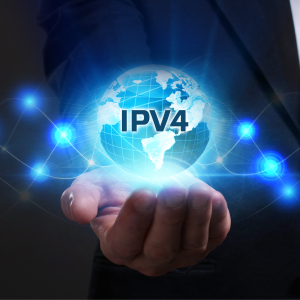
In recent years, the rapid growth of cloud computing has led to an increased demand for public IPv4 addresses. These addresses are essential for enabling communication between devices over the internet. However, due to the limited supply of IPv4 addresses, cloud providers are now starting to charge for their usage. This shift not only aligns cloud providers with industry trends but also encourages frugal usage of this scarce resource and accelerates the adoption of IPv6, the next-generation internet protocol.
The Scarcity of IPv4 Addresses:
IPv4, the fourth version of the Internet Protocol, uses 32-bit addresses and supports approximately 4.3 billion unique addresses. With the explosive growth of internet-connected devices, including smartphones, IoT devices, and cloud infrastructure, this finite pool of IPv4 addresses has become strained. As a result, the exhaustion of available IPv4 addresses has necessitated the transition to IPv6, which offers exponentially more addresses.
Alignment with Industry Trends:
Cloud service providers, such as Amazon Web Services (AWS), Microsoft Azure, and Google Cloud Platform, have traditionally provided IPv4 addresses at no additional cost to their customers. However, in response to the growing scarcity of IPv4 addresses, these providers have started to implement charges for their usage. This change brings them in line with other cloud providers and reflects the evolving landscape of the industry.
Encouraging Frugal Usage:
By introducing charges for public IPv4 addresses, cloud providers aim to encourage a more efficient and frugal usage of this precious resource. The costs associated with acquiring and maintaining IPv4 addresses can incentivize customers to optimize their address allocation strategies, reduce wastage, and adopt more economical alternatives such as IPv6.
Accelerating IPv6 Adoption:
One of the primary objectives of charging for public IPv4 addresses is to accelerate the adoption of IPv6. IPv6 offers a vast pool of addresses, ensuring the long-term sustainability of internet connectivity. By introducing charges for IPv4 addresses, cloud providers are nudging their customers towards embracing IPv6 as the future standard. This transition allows for seamless communication between IPv6-enabled devices and ensures that the internet remains scalable and future-proofed.
Considerations and Implications:
The introduction of charges for public IPv4 addresses prompts organizations to reevaluate their address management practices. Companies must assess their current infrastructure, evaluate the cost-benefit analysis of using IPv4 versus IPv6, and devise strategies for migrating towards IPv6 compatibility. Moreover, it emphasizes the need for greater awareness and understanding of IPv6 among IT professionals and network administrators.
Conclusion:
As the demand for public IPv4 addresses continues to outpace the available supply, cloud providers are adapting their pricing models to reflect this scarcity. By charging for the usage of IPv4 addresses, these providers align themselves with industry trends, promote frugal resource allocation, and expedite the adoption of IPv6. This shift not only encourages a more sustainable approach to address management but also ensures the long-term viability of internet connectivity in an increasingly connected world.
With NocRoom, you can lease IPv4 addresses and choose between our network of servers or use them with your preferred server provider. Our comprehensive services include LOA (Letter of Authorization), ROA (Route Origin Authorization), RDAP (Registration Data Access Protocol), and LIR (Local Internet Registry) support.


